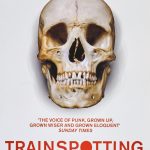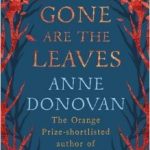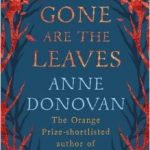Continuing our series on Scots novels that we have loved, here are three novels written by highly successful Scottish authors who are, of course, masters of the Scots tongue. Let us know in the comments if you have any other recommendations – we’d love to hear them!
How Late It Was, How Late by James Kelman
Whenever anyone questions what success you can possibly hope to have if you write in Scots, it’s worth citing James Kelman in your defence. How Late It Was, How Late, which is written entirely in Glaswegian dialect, won the 1994 Booker Prize- one of the few working class novels ever to do so- and despite its brilliance, in my opinion, it’s not even his best book! Kelman’s writing embodies and elucidates the souls of ordinary Glasgow people and if you haven’t read any of his novels, I recommend that you start now.
In How Late It Was, How Late Sammy suffers blindness – perhaps caused by a beating he received from the police. From there, the reader follows him closely through the trials and tribulations he experiences as he tries to get by without his sight and his girlfriend, Helen, who hasn’t returned after the drunken weekend Sammy can’t remember and which led to him being arrested in the first place. From the opening page, Kelman hauls us through various levels of Sammy’s consciousness, so we are made to feel that we are thoroughly with Sammy all the way, experiencing his experiences with him. As a reader, I’m certain that you will be as compelled as I was to follow him to the end.
Gone Are The Leaves by Anne Donovan
Few writers can make the Scots’ language sound as beautiful and melodious as Anne Donovan. Donovan’s latest novel, Gone Are The Leaves, is a departure from her previous novels and their Glaswegian tongue. Instead, Gone Are The Leaves is written almost entirely in old Scots, and Donovan’s passion for the language oozes through the narrative. In one of Donovan’s recent public appearances, she said that Gone Are The Leaves was born from a few exciting, novel words she found in her Scots dictionary. How such an imaginative and exquisite story could be conceived in this way is testament to Donovan’s immense talent. Gone Are The Leaves is a historical fiction novel like few others – for starters, the exact time period in which it is set is never explicitly stated. Instead, Donovan creates a believable but made-up world, and the story is both a mystery and a romance which centres around the main characters Feliamort and Deirdre. Feliamort is one of the best singers in the land, but memories of his childhood elude him. Deirdre, a daughter of one of Scotland’s wealthiest families, is being forced into a marriage with a man whom she does not love. The friends are faced with difficult decisions, which lead them to discover secrets which those around them would have preferred to have stayed buried. This is a thrilling read, in which Donovan again demonstrates her talent for deftly exploring human emotions.
Trainspotting by Irvine Welsh
Irvine Welsh is a renowned Scottish author. His writing has spawned a highly successful film franchise (Trainspotting and Trainspotting 2) alongside individual films such as Filth and Acid House, as well as several successful theatre productions of Trainspotting. However, I’m not sure if his talent at capturing and bringing to life everyday Scottish speech is fully appreciated. Whilst he is typically considered an accomplished, comedic author, his mastery of working-class Edinburgh dialect is second to none. Trainspotting is Welsh’s debut and most celebrated novel. Written as a series of short stories from the multiple first person perspectives of heroin addicts in late 1980s Edinburgh, mixed with some observant, third person prose, Trainspotting is funny, harrowing, utterly engaging and also very literary. To readers who may be put off by the subject matter, Welsh’s understanding of the human condition is something to which they should all be able to relate. Moreover, the Scots dialogue is raw and believable. It’s worth noting that Irvine Welsh has also demonstrated talent at capturing other dialects across the world, as can be seen in his collection of short stories: If You Liked School, You’ll Love Work.
Words by Claire Kennedy






